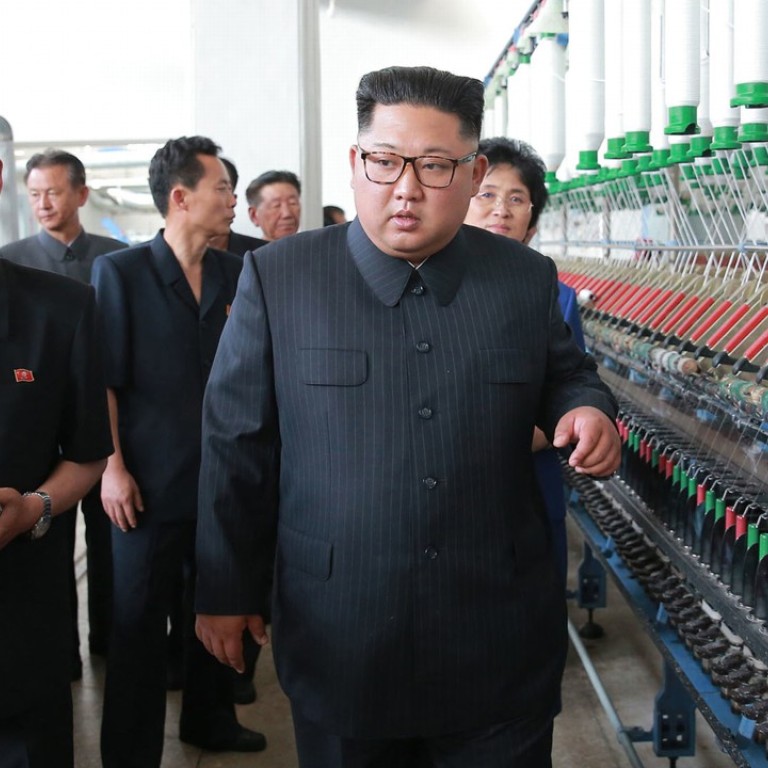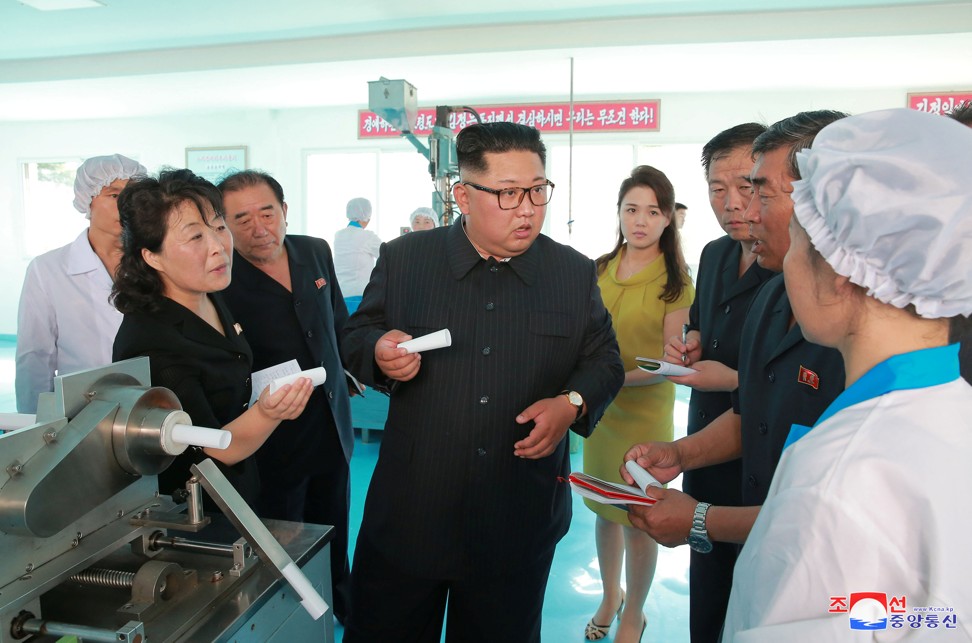
North Korean economic official arrives in China as Pyongyang continues to lean on Beijing for support
Ku Bon-tae, vice-minister of external economic affairs, is set to discuss cooperation on agriculture, railways and electricity, Yonhap says
A senior North Korean economic policy official is visiting China in the latest sign Pyongyang wants to boost its engagement with Beijing to revive its economy, which has been squeezed by UN sanctions.
Ku Bon-tae, vice-minister of external economic affairs, arrived at Beijing International Airport on Monday on board an Air Koryo plane, South Korea’s Yonhap news agency reported.
A diplomatic source was quoted as saying that Ku’s visit was “a show of the will of North Korea and China to seek economic cooperation in earnest”.
Ku is expected to discuss cooperation in agriculture, railways and electricity with Chinese officials, the Yonhap report said.
North Korea is keen to deepen economic ties with its long-time ally and largest trading partner, after its leader Kim Jong-un pledged to move away from nuclear testing and towards economic development.
On Sunday, North Korea’s state media reported that Kim, accompanied by his economic advisers from the ruling Workers’ Party, visited a textiles factory in the special economic zone of Sinuiju on the border with China. Kim was reported to chastised workers for not working hard enough and complaining too much.
After his summit with US President Donald Trump last month, Kim has been keen to boost cooperation with Beijing as a way to break down the sanctions that have made it almost impossible for North Korea to sell its goods overseas.
A week after meeting Trump in Singapore, Kim flew to Beijing for his third round of talks with Chinese President Xi Jinping in as many months. Japanese newspaper Yomiuri reported on Sunday that the North Korean leader had appealed for Xi’s help in bringing an end to the sanctions.
“We are feeling great pain due to economic sanctions. Now that we have concluded the US-North Korea summit successfully, I want [China] to work towards an early lifting of the sanctions,” he was quoted as saying.
Michael Kovrig, senior adviser for Northeast Asia at International Crisis Group, said Pyongyang was aware it needed Beijing’s support.
“It’s trying to encourage China to lobby for the sanctions to be lifted and to provide financial help, trade and investment,” he said.
“China’s long-standing policy has been to encourage engagement and try to change North Korean behaviour through trade and development. So as long as North Korea refrains from provocations, we can expect this dialogue to continue.”
Lu Chao, a North Korean affairs expert at the Liaoning Academy of Social Sciences, agreed.
“China generally supports North Korea’s strategic refocusing and economic development, so there’s no doubt there will be more economic cooperation,” he said.
Kovrig and Lu also agreed that while Beijing might support North Korea’s efforts to have the sanctions lifted, it was unlikely to go against the UN or global opinion as that would risk secondary sanctions from the US.
Despite Kim’s apparent desire to call time on his country’s nuclear programme, satellite photos seen by the California-based Middlebury Institute of International Studies suggest North Korea is still finalising its work on a missile manufacturing site.
Meanwhile, US officials were cited in a Washington Post report that despite the promises Kim made to Trump in Singapore, he has no plans to surrender his nuclear weapons and is rather planning to conceal them.


